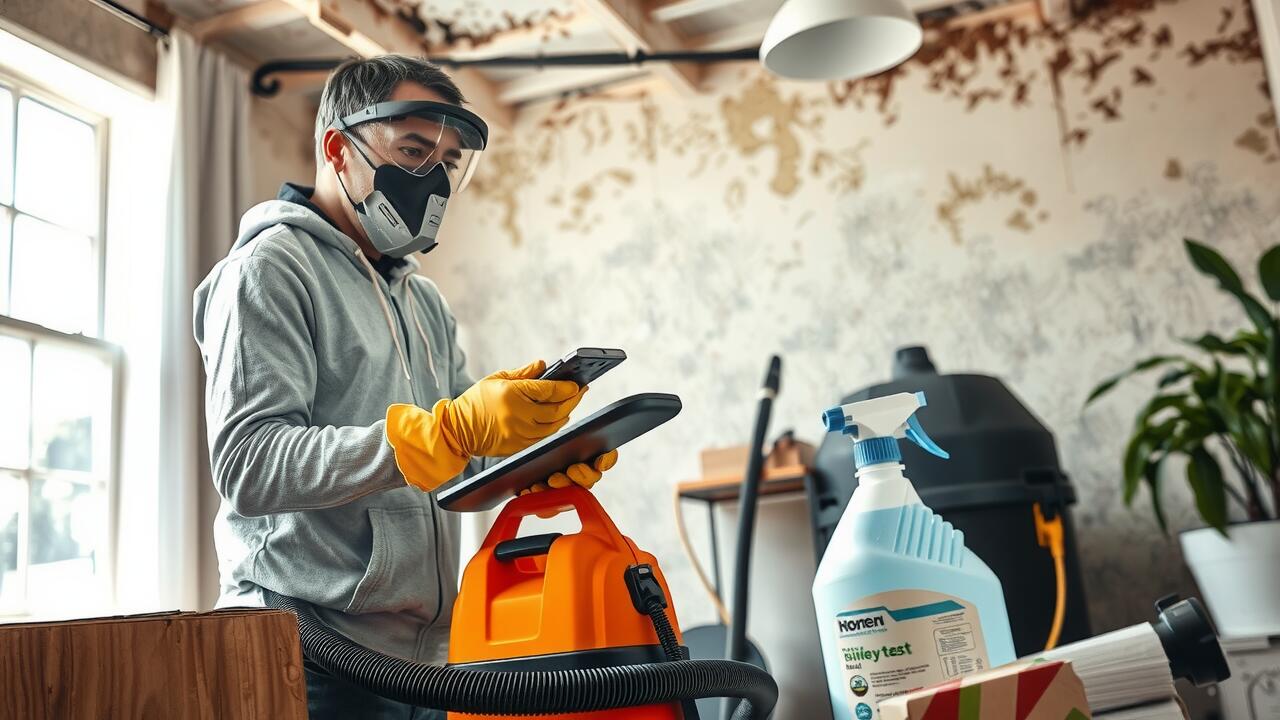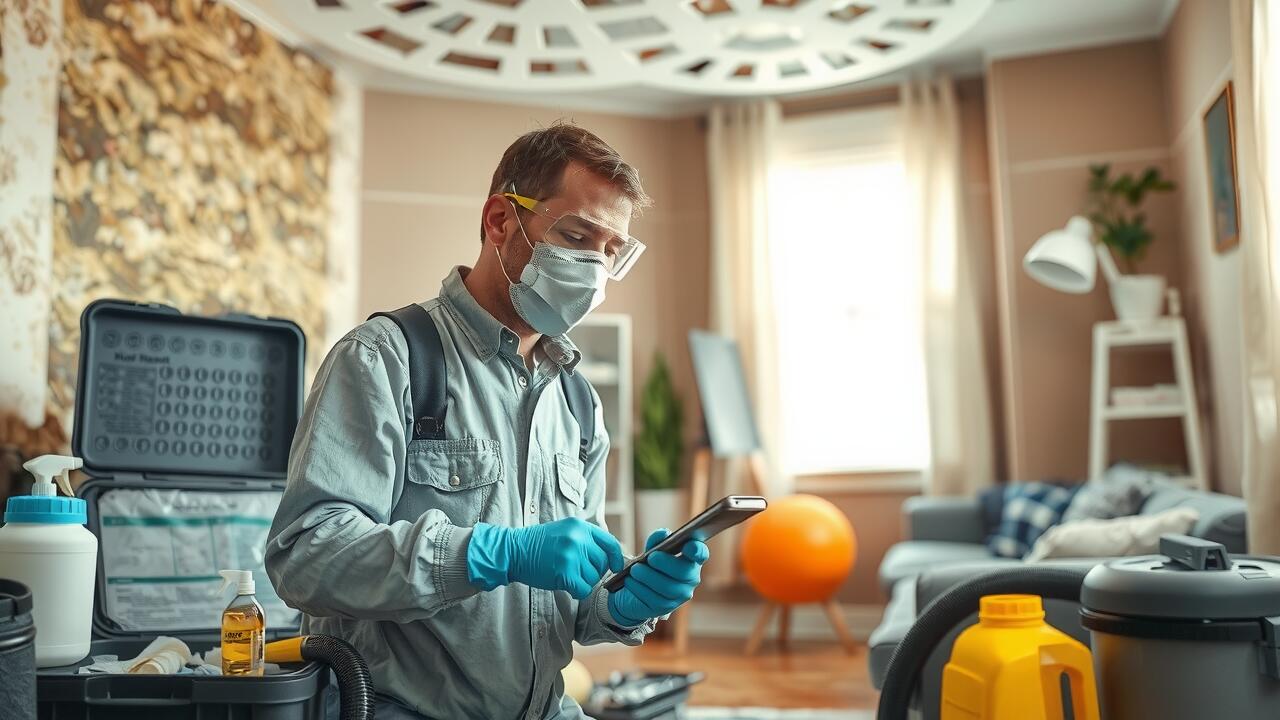
The Role of Insurance in Mold Remediation
Homeowners often face the dilemma of whether their insurance policies will cover mold remediation in Columbus, Ohio. Many standard homeowners’ insurance policies include specific clauses related to mold damage, but coverage can vary significantly depending on the policy type. Factors such as the source of the moisture that led to the mold growth and the duration of the issue can play crucial roles in determining whether a claim will be honored. Understanding these nuances can help homeowners make informed decisions when addressing mold issues in their properties.
In some cases, additional endorsements or riders can enhance the coverage for mold-related claims, especially if the homeowner is proactive in addressing potential moisture problems. Insurance companies may also require preventive measures to be taken to mitigate future risks, and failure to comply could result in denied claims. With mold remediation in Columbus, Ohio possibly involving significant costs, homeowners should regularly review their insurance policies and maintain open communication with their insurance providers to ensure adequate protection against mold-related damages.
Coverage Options for Homeowners
Homeowners in Columbus, Ohio, may find that their standard homeowner’s insurance policies provide limited coverage for mold-related damages. Many policies include specific exclusions for mold unless it arises from a covered peril, such as a burst pipe. It’s vital for homeowners to carefully review their policy details to understand the extent of their coverage and to explore additional riders if needed.
In some cases, homeowners can purchase supplemental mold coverage to enhance their protection against mold remediation costs. This can offer peace of mind, especially in areas that experience high humidity or water intrusion. Understanding these coverage options can play a crucial role in mitigating the financial burden of mold remediation in Columbus, Ohio, should the need arise.
Preventative Measures to Reduce Future Mold Issues
Homeowners can take several preventative measures to reduce the risk of mold growth in their properties. Regularly inspecting areas prone to moisture, such as basements, bathrooms, and kitchens, is essential. Fix any leaks and ensure proper ventilation in these spaces. Using dehumidifiers can help maintain lower humidity levels, which is crucial in mold prevention. Keeping the home clean and dry also contributes to reducing the likelihood of mold development.
When planning construction or renovations, consider using mold-resistant materials. Products such as mold-resistant drywall, paints, and insulation can offer added protection. Implementing good drainage systems around the property minimizes water accumulation, making it less conducive to mold. By prioritizing these preventative strategies, homeowners not only protect their living spaces but also manage the long-term costs associated with Mold Remediation in Columbus, Ohio.
Maintenance and Home Improvements
Regular maintenance and home improvements play a crucial role in preventing mold growth and ensuring a safe living environment. Homeowners should focus on fixing leaks promptly, improving ventilation in areas prone to moisture, and maintaining adequate humidity levels. Simple tasks such as cleaning gutters and ensuring proper drainage can significantly reduce the likelihood of mold issues. Investing in high-quality materials for roofing and siding can also enhance the durability of the home against water intrusion.
In addition to maintenance, certain home improvements can further mitigate the risk of mold development. Upgrading insulation and sealing crawl spaces can keep moisture levels in check. Using mold-resistant paints and materials during renovations is another effective strategy. These proactive measures not only help in avoiding costly Mold Remediation in Columbus, Ohio but can also contribute to the overall value and longevity of the property.
The Impact of Mold on Property Value
Mold presence in a home can significantly diminish its value, creating challenges for homeowners looking to sell. Prospective buyers often view mold as a sign of neglect or ongoing issues. This perception can lead to lower offers or even deter potential buyers altogether. Homes requiring mold remediation in Columbus, Ohio, may need to undergo extensive inspections and repairs, adding additional layers of complexity to the selling process.
Moreover, homes that have a documented history of mold issues may face long-term financial implications. Even after remediation, concerns about recurrence can linger in the minds of potential buyers. This lingering worry may lead to decreased appraisals, resulting in a diminished return on investment for homeowners. Addressing mold issues proactively not only protects property value but also fosters a more favorable market perception.
Long-term Financial Implications
Mold can significantly diminish a property’s value, leading to long-term financial implications for homeowners. A history of mold issues may deter potential buyers, causing property listings to remain on the market longer or resulting in reduced offers. Homebuyers often request inspections, and the discovery of mold can lead to demands for remediation or price negotiations that may not favor the seller.
Investing in mold remediation in Columbus, Ohio, can ultimately protect property value and ensure a safer living environment. Addressing the problem promptly not only prevents further structural damage but also helps maintain the appeal of the home. The costs associated with remediation often pale in comparison to the long-term losses incurred from ongoing mold issues. This proactive approach can make a considerable difference when considering the future resale potential of a property.
FAQS
What factors influence the cost of mold remediation in Columbus, Ohio?
The cost of mold remediation can be influenced by several factors, including the size of the affected area, the severity of the mold infestation, the type of mold present, and the specific remediation methods required. Additional costs may arise from repairs needed to the structure or personal belongings affected by the mold.
Does homeowners insurance cover mold remediation costs?
Coverage for mold remediation varies by policy. Some homeowners insurance policies may cover mold remediation if it results from a covered peril, such as water damage. It’s essential to review your policy and consult with your insurance agent to understand your coverage options.
How can homeowners prevent mold growth in their homes?
Homeowners can prevent mold growth by maintaining proper ventilation, controlling indoor humidity levels, promptly addressing leaks and water damage, and ensuring that gutters and downspouts direct water away from the foundation. Regular maintenance and inspections can also help identify and address potential issues before they escalate.
What are the long-term financial implications of mold damage on property value?
Mold damage can significantly impact property value, potentially leading to reduced marketability and lower offers from buyers. Addressing mold issues promptly and thoroughly can help mitigate these risks and protect the property’s value in the long run.
How quickly should I address a mold problem in my home?
It’s important to address mold problems as soon as they are identified. Mold can spread quickly and may lead to health issues, property damage, and higher remediation costs if left untreated. If you notice mold or experience signs of mold-related health issues, it’s best to consult a professional promptly.
